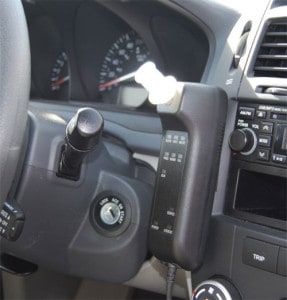 2014 has been a productive year for lawmakers, Mothers Against Drunk Driving (MADD), and other individuals and organizations pushing toward all-offender ignition interlock laws in every state. At the beginning of the year, 20 states had all-offender interlock laws, up from one state in 2006. Since January, four more states have enacted all-offender interlock laws, eight states have improved their interlock laws, and four states are considering all-offender interlock laws.
2014 has been a productive year for lawmakers, Mothers Against Drunk Driving (MADD), and other individuals and organizations pushing toward all-offender ignition interlock laws in every state. At the beginning of the year, 20 states had all-offender interlock laws, up from one state in 2006. Since January, four more states have enacted all-offender interlock laws, eight states have improved their interlock laws, and four states are considering all-offender interlock laws.
Alabama, Mississippi, New Hampshire, and Delaware are the four states that have enacted all-offender ignition interlock laws this year while New Jersey, Ohio, North Carolina, and Pennsylvania are all considering such a law. Let’s take a look at what other states have done this year to reduce drunk driving through ignition interlock use:
- Rhode Island: All repeat offenders, first-time offenders with a blood alcohol content (BAC) of 0.15 or higher, and offenders who repeatedly refuse BAC tests are all required to install the device. Previously, interlocks were only ordered for repeat offenders at the judge’s discretion.
- South Carolina: Emma’s Law requires first-time offenders with a BAC of 0.15 or higher to install the device while other first-time offenders can install the device voluntarily in lieu of a license suspension. Previously, only repeat offenders were required to install interlocks.
- Connecticut: The state passed an all-offender interlock law in 2011, but it never went into full effect for some DUI offenders. A new law now makes interlocks mandatory for all convicted drunk drivers.
- Kansas: This state also passed an all-offender interlock law in 2011, but it had an end date of 2015. A new law makes the all-offender interlock law permanent.
- West Virginia: The state already requires interlocks for all convicted drunk drivers, but a new law closes a loophole that prevented offenders from installing the device right away.
- Maryland: Anyone convicted of drunk driving with a child passenger in the vehicle is now required to install the device.
- Indiana: Repeat offenders are now required to install the device while judges can order the device for first-time offenders. Previously, interlocks weren’t required for any drunk drivers.
- Florida: A new law will allow judges to order interlocks for first-time offenders with a BAC of 0.08 to 0.14. The state’s current ignition interlock law only requires the device for first-time offenders with a BAC of 0.15 or higher and all repeat offenders.
The most exciting ignition interlock law news of 2014? Representative Nita Lowey introduced a federal bill that would incentivize all-offender interlock laws in every state in the same way a 2000 law pushed all states to lower their legal BAC levels to 0.08. Named after MADD President Jan Withers’ daughter, Alisa’s Law would push states to required all convicted drunk drivers to install the device for at least six months.
